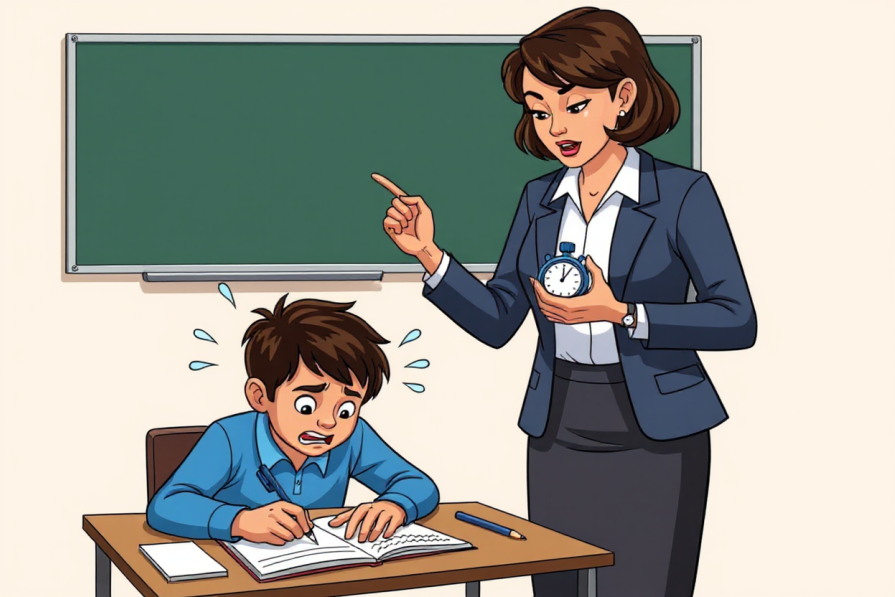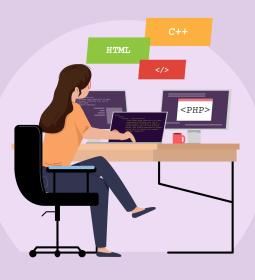Where did the idea of slow education come from, why schools began to resemble factories, and who today can afford to study without haste
The last century turned out to be a time not only of technical progress, but also of a real race in everyday life. Everything around began to accelerate: transport, production, household tasks... Also education fell under this wave. However, the consequences of this acceleration are beginning to be felt only now, when it becomes clear that life at a speed of 2x leaves behind not only fatigue, but also emptiness.

Many have already realized the harm of achievement, but one of the directions still remains in the shadows - this is the theory of slow education. Almost everyone has heard of slow fashion or slow food, but the idea of Slow Education still raises questions: is it really necessary? How to apply it in real life?
When school becomes a conveyor belt
The fact that a quick approach to learning has its disadvantages was discussed back in the early 2010s. One of the first was Mike Grenier, a teacher from Eton, UK: he was concerned that students stopped participating in the learning process consciously, turning into passive consumers of information. In fact, the system has turned into a chain — a task, a solution, an assessment — without room for reflection and "why" questions.
Other experts also drew attention to the problem. In particular, the theory of "McDonaldization" of education has emerged: this concept describes the process in which a school begins to work according to the principles of the fast food industry — quickly, predictably, according to a template. It seems convenient, because standardization made it possible to make education massive, but an unpleasant reality was hidden behind it. When the amount of material covered is more important than its understanding, when tests are written for the sake of ticking, and the subject is studied for the sake of the final grade – what kind of interest in knowledge can we talk about? As a result, even a talented child begins to perceive learning as a heavy duty.

Why are we always in a hurry?
The reason for the acceleration of education is clear: a modern person is afraid of not having time. At the age of seven, a child is already being prepared for exams, which he will pass in ten years, and instead of being given the opportunity to explore the world in peace, he is seated in front of worksheets and tables. Any delay in this chain is perceived as a failure. It seems logical to teach as soon as possible so that a teenager can graduate from school as soon as possible, enter a university and enter the labor market! This idea is being actively promoted, and at the highest level. Not so long ago, after the proposal to shorten the period of study in schools and universities, it turned out that more than half of respondents are categorically against such innovations.
People are beginning to realize that in the race for speed, the most important thing is missing. The very word curriculum means "running" in Latin! But where this race leads and what remains behind is a question that is being asked more and more often.
When critical thinking disappears
At first glance, it seems that standardized education is convenient: there are clear rules, tasks, and standard solutions. The problem arises when a child is faced with a situation that does not fit into a familiar pattern. Today, many teachers note: if you slightly change the wording of the problem, the student is lost. At school, they are taught not to think, but to decide according to instructions. This works as long as the task is standard, but it is absolutely useless in life, where no one gives ready-made solutions.
Rapid learning affects not only the quality of knowledge, but also the psychological state of children: constant haste, a large number of tasks, the race for grades - all this forms anxiety and fear of making mistakes.
What can be changed
If you try to find a way out, it becomes clear that alternative learning formats can help. Private schools and competent tutors are still one of the few ways to get a conscious education: so the student can be offered an individual schedule, a gradual complication of the material and attention to his personal interests.
Of course, this approach is not available to everyone, both in terms of time and finances. Society, accustomed to express courses and video lessons at a speed of 2x, has almost forgotten how to wait.
However, even in public schools, it is possible to find teachers who try to go beyond the standardized curriculum! They try to show children that it is normal to make mistakes, that working with unusual tasks develops not only knowledge, but also character.
So far, such initiatives, alas, remain rather an exception. Ministerial programs are still designed for the average student, the responsibility for the result falls on the shoulders of teachers, so they are forced to keep up with the plan and at the same time figure out how to interest students.

Will slow education become more affordable?
It is obvious that solving the problem requires not only the efforts of individual teachers or schools, but also the organization of the entire education system, its goals and priorities. Slow education is not about stretching deadlines: it is about thoughtful study of the material, about the development of critical thinking, about understanding, not memorization.
In the meantime, it turns out that high-quality and conscious studying becomes a privilege: it can be obtained, but most often for an additional fee and outside the standard program. This is probably the most alarming thing in the current situation. I would like to believe that sooner or later society will abandon the idea of "quick results at any cost" at least in the field of education, because it is here that the ability to think, analyze and make decisions is laid. Without this, in the future, we will have to ask ourselves an uncomfortable question more and more often: where were we in such a hurry, if we did not really understand anything on the way...










